Introduction
How Long Do Pigeons Nest For: Pigeons, with their distinctive cooing calls and ubiquitous presence in urban landscapes, have long fascinated humans with their nesting behavior. These resilient and adaptable birds are known for their unique nesting habits, which have been the subject of curiosity for both bird enthusiasts and casual observers alike. One of the most intriguing aspects of pigeon behavior is the duration of their nesting period. Examining their nesting habits, the factors that influence the duration of their nesting periods, and the role they play in our urban ecosystems.
Our investigation, you’ll have a deeper understanding of the remarkable nesting behaviors of pigeons and the significance they hold in the avian world. Pigeons, also known as rock doves, exhibit fascinating behaviors that have been honed over millennia of cohabitation with humans. They are renowned for their adaptability, able to nest in a wide range of environments, from the ledges of skyscrapers to the nooks and crannies of historic buildings, making them a constant presence in urban settings worldwide.
But what truly captures our intrigue is the duration of their nesting periods. Unlike many other bird species, pigeons do not adhere to a strict annual breeding schedule. Instead, they are known for their relatively long and continuous nesting periods, which can stretch across multiple months or even the entire year. This unique reproductive strategy sets them apart from many other avian species and prompts us to ask why and how they engage in such extended nesting activities. So, join us on this avian journey as we unravel the mysteries of how long pigeons nest.
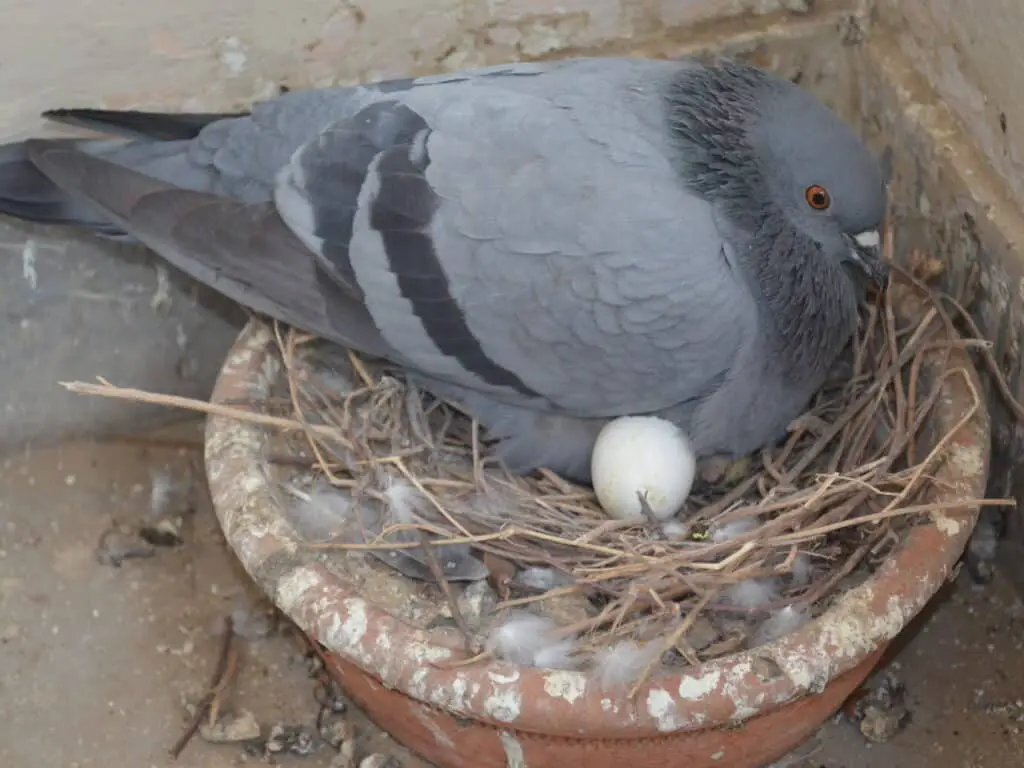
How long do pigeons stay in their nest?
Usually, a total of two eggs will incubate around 18 days. The newborn pigeons will leave the nest on the 25th to 29th day. The feral pigeon usually needs at least 7 months to reach sexual maturity.
Pigeons, often referred to as rock doves, are renowned for their unique nesting habits, including their remarkable duration in the nest. Unlike many other bird species with fixed breeding seasons, pigeons display a relatively extended nesting period that can vary depending on several factors.
On average, pigeons typically stay in their nests for about 25 to 35 days. This duration encompasses various stages of the nesting cycle, from egg incubation to the fledgling stage when the young pigeons, known as squabs, leave the nest. However, the precise length can fluctuate based on environmental conditions, food availability, and the overall health of the parent pigeons.
Pigeons are known for their adaptability to urban environments, often nesting on building ledges, windowsills, or any suitable books they can find. Their resilience enables them to breed year-round, and in some cases, pigeons may even have multiple broods in a single year.
Do pigeons sit in the nest all the time?
The female may sit on the nest a day or two before the first egg is laid. Pigeons usually lay 2 white eggs in each clutch. Only one egg is laid each day. Both the male and female will incubate the eggs, but the female will be the one spending the most time on the eggs sitting from mid-afternoon to mid-morning.
Incubation: Initially, one or both parent pigeons will take turns incubating the eggs. The incubation period typically lasts for about 16 to 18 days. During this time, one of the parents sits on the eggs to keep them warm, while the other may take short breaks for feeding and grooming.
Feeding and Care: Once the eggs hatch, both parents become actively involved in caring for the squabs. They take turns feeding the young birds with a special secretion called “pigeon milk,” which is produced in their crop. These feeding sessions are crucial for the squabs’ growth and development.
Short Breaks: While caring for their young, parent pigeons do take short breaks to forage for food and maintain their own health. These breaks are necessary to replenish their energy reserves.
Nest Maintenance: Pigeons also engage in nest maintenance activities, such as rearranging nesting material and removing waste to keep the nest clean.
When can I get rid of a pigeon nest?
As a rule, no. You must not damage or destroy an active nest and you must allow the young to leave the nest before taking any action to block the entrance. Don’t start work if you know birds are nesting, and if you do discover a nest then leave it alone.
After Nesting Season: Once the nesting season has concluded, and the pigeons have vacated the nest, it’s usually safe to remove the nest. However, ensure that no eggs or chicks are present before doing so.
If the Nest Poses a Health or Safety Risk: If the pigeon nest is located in an area that poses a health or safety risk, such as inside ventilation systems or electrical equipment, removal may be necessary for human safety.
With Proper Legal Permissions: If local laws permit and authorities grant permission, you may be able to remove a pigeon nest. In such cases, it’s crucial to do so humanely, avoiding harm to the birds.
Prevent Future Nesting: To prevent pigeons from returning to the same nesting spot, take measures to deter them, such as installing physical barriers or using non-lethal deterrents like bird spikes or netting.
Is it lucky if pigeons nest at home?
Yes, when pigeons naturally come and build a nest in your house, it is considered to be auspicious. Vastu experts state that the arrival of birds in the house implies an improvement in life’s fortune. In many cultures, pigeons are considered to be symbolic of fertility and prosperity, fortune, luck, and transformation.
The belief that pigeons nesting at home brings luck is a cultural and superstitious notion that varies from one culture to another. In some traditions, pigeons are indeed considered as symbols of good luck, while in others, they may be associated with different meanings or superstitions.
In some cultures, pigeons or doves are viewed as symbols of peace, love, and harmony. The presence of pigeons nesting at home is believed to bring positive energies, tranquility, and love to the household. This belief might stem from the historical significance of pigeons as messengers of peace, which is rooted in ancient stories and myths.
On the other hand, there are cultures where pigeons may not be associated with luck but instead carry different symbolic meanings or superstitions. For example, in some regions, pigeons nesting at home might be seen as an omen of various kinds, depending on local beliefs and traditions.
Do pigeons sleep in nests?
Because pigeons don’t sleep in their nests, they need to find other locations to spend the night and get some rest. Pigeons look for shelters that will keep them warm throughout the night while also protecting them from predators. They often find this shelter on roofs of homes and other buildings.
Yes, pigeons do sleep in nests, but their sleeping habits can vary depending on the time of day and their life stage. Pigeons are diurnal birds, which means they are primarily active during daylight hours. At night, they typically seek shelter in their nests for rest.
During the night, adult pigeons and their squabs young pigeons will huddle together in their nests for warmth and safety. The nests provide a secure and elevated platform for them to sleep, protecting them from ground predators. Pigeons are known for their strong homing instincts, so they return to their nests regularly.
Pigeons can also take short naps during the day, especially when they are incubating eggs or caring for their young. These brief periods of rest are essential for maintaining their energy levels while they engage in their various activities.
Is the pigeon nest on the balcony good or bad?
It is generally believed that it is inauspicious to have a pigeon’s nest in the house. Nesting on the balcony or terrace of the house means that he has brought bad luck with him. It should be removed promptly in this situation. Otherwise, the person has to face many problems.
Positive Aspects
Natural Beauty: Some people appreciate the beauty of nature and find joy in observing birds up close. Having a pigeon nest on your balcony can provide a unique opportunity to witness the nesting and raising of young pigeons, which can be a fascinating and educational experience.
Wildlife Connection: It allows you to feel connected to the natural world, even in an urban environment. It’s a reminder of the coexistence between humans and wildlife.
Good Luck Beliefs: In some cultures, pigeons are considered symbols of peace, love, and good luck. As such, having pigeons choose your balcony for nesting might be seen as a positive sign.
Negative Aspects
Mess and Noise: Pigeons can be messy birds, and their nests can lead to droppings and debris on your balcony. Additionally, their cooing calls can be noisy, which may be bothersome, especially if you live in close proximity to the nest.
Health Concerns: Pigeon droppings can pose health risks, as they may contain pathogens. Accumulated droppings can also damage surfaces and require cleaning and maintenance.
Nesting Habits: Pigeons may nest multiple times a year, potentially leading to a continuous presence on your balcony. This can be inconvenient if you wish to use the space for other purposes.
How many times do pigeons nest?
Peak breeding season is between March and July but feral pigeons can breed all year round. Normally 2 eggs are laid with 2 to 4 broods each year. The eggs are incubated for 18 to 19 days and the hatched chick’s or squabs are fledged and leave the nest after 30 to 37 days.
Pigeons, renowned for their adaptability and resilience, have a unique nesting behavior that sets them apart from many other bird species. Unlike birds that strictly adhere to an annual breeding season, pigeons have the capacity to nest multiple times throughout the year, often making them prolific breeders.
The frequency of pigeon nesting largely depends on environmental factors such as food availability, climate, and the overall health of the pigeon pair. In mild climates with abundant food resources, pigeons may nest continuously, with the potential for up to six or more broods in a single year.
The nesting cycle of pigeons typically consists of courtship, nesting, egg incubation, chick rearing, and rest periods in between. Once the young pigeons, or squabs, are independent and capable of fending for themselves, the parent pigeons may initiate another nesting cycle.
What do pigeons represent spiritually?
Pigeons are symbolic of fertility and prosperity, fortune, luck, and transformation. They’re said to be one of the first bird species to be domesticated by humans and have been friends to us since ancient times. These birds are also symbolic of persistence, harmony and well-being, mercy and forgiveness, and freedom.
Peace and Harmony: Perhaps the most well-known spiritual representation of pigeons is as symbols of peace and harmony. This association is deeply rooted in Judeo-Christian traditions, where the dove is often depicted as a messenger of peace, most notably in the biblical story of Noah’s Ark. Pigeons are often seen as earthly counterparts to these peaceful doves.
Love and Devotion: In some cultures, pigeons are associated with love and fidelity. Their lifelong mating bonds and dedicated parenting behavior symbolize loyalty and devotion in relationships. This symbolism is often linked to weddings and romantic partnerships.
Messenger of the Spirit: Pigeons are sometimes seen as messengers between the earthly and spiritual realms. In certain spiritual traditions, pigeons are believed to carry messages from the deceased to the living, bridging the gap between this world and the afterlife.
Renewal and Rebirth: Pigeons are known for their ability to adapt to urban environments and thrive despite challenges. This resilience is sometimes interpreted as a symbol of renewal and rebirth, signifying the possibility of transformation and growth even in adverse conditions.
Sacrifice and Offering: In some cultures, pigeons have been used historically as sacrificial offerings in religious rituals, symbolizing the act of giving and seeking divine favor.
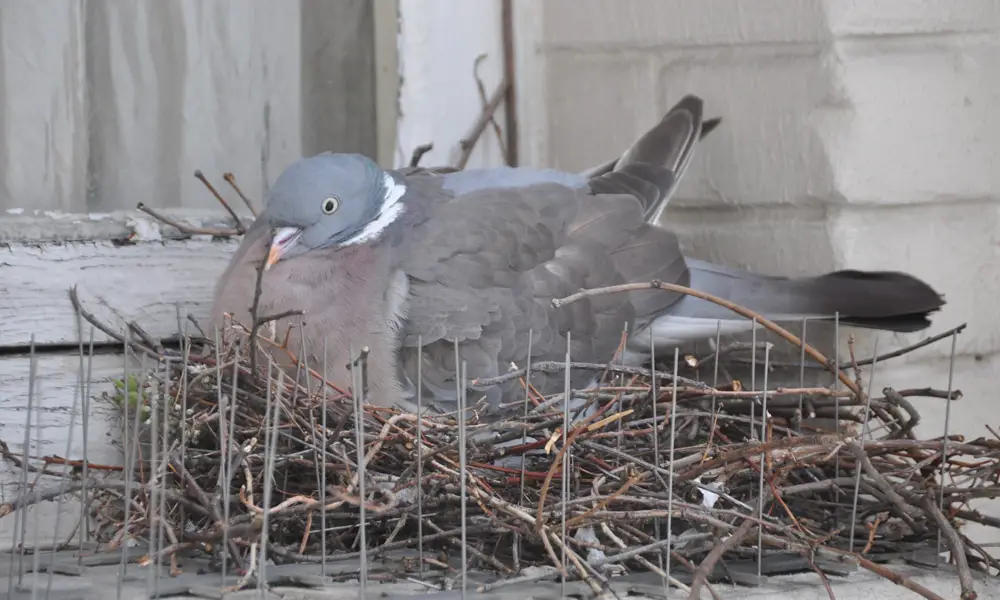
Conclusion
The duration of pigeon nesting is a captivating aspect of these resilient and adaptable birds’ behavior. While many bird species adhere to seasonal breeding patterns, pigeons stand out with their relatively long and continuous nesting periods, often stretching across multiple months or even the entire year. This unique reproductive strategy is influenced by various factors, including environmental conditions, food availability, and social dynamics within pigeon flocks.
The world of pigeon nesting has not only unveiled the secrets of their extended nesting habits but has also highlighted their remarkable adaptability to urban environments. Pigeons have mastered the art of coexisting with humans, finding shelter on skyscraper ledges and historic buildings, and contributing to the unique tapestry of city life. Pigeons play a vital role in our urban ecosystems. shedding light on the remarkable world of these adaptable and resilient urban birds.
As scavengers, they help clean up our streets by consuming food scraps and other organic matter, which can be especially beneficial in densely populated areas. Their presence also serves as a reminder of the delicate balance between wildlife and human habitation, urging us to consider the importance of cohabitation and biodiversity in our urban landscapes. In our quest to understand how long pigeons nest for, we have gained a deeper appreciation for these urban dwellers.

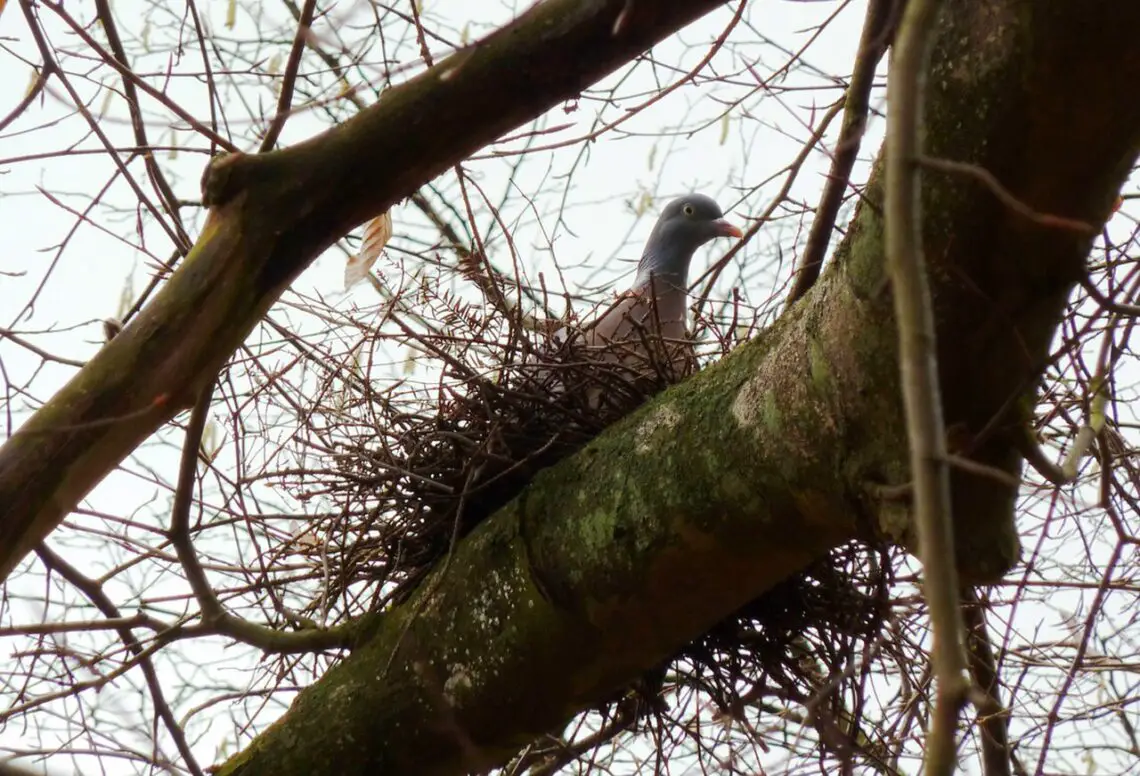
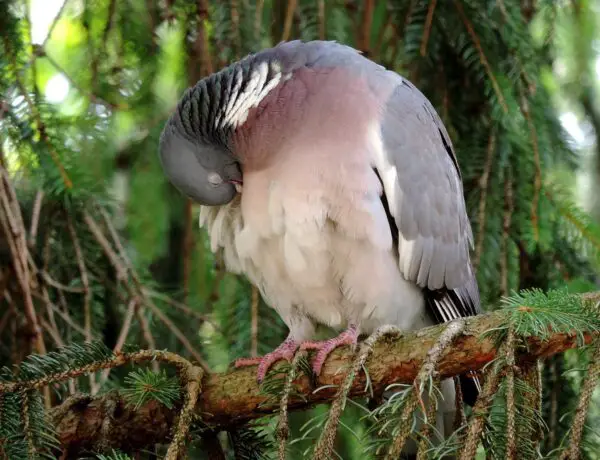
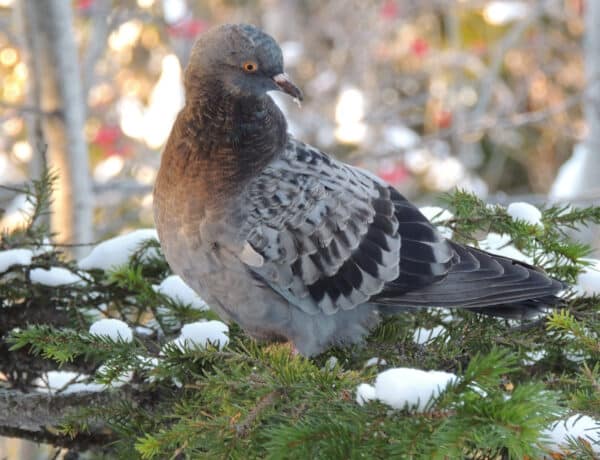
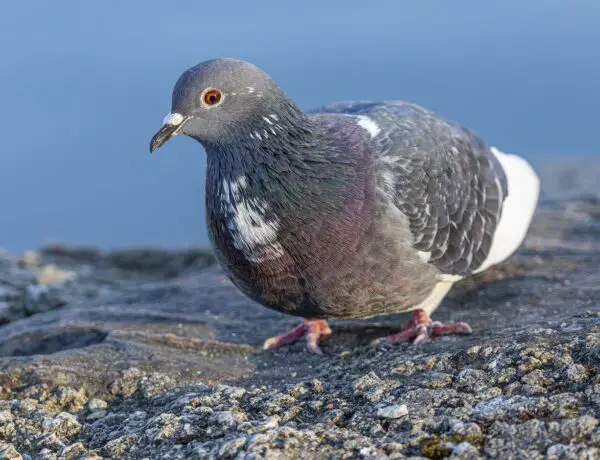
No Comments